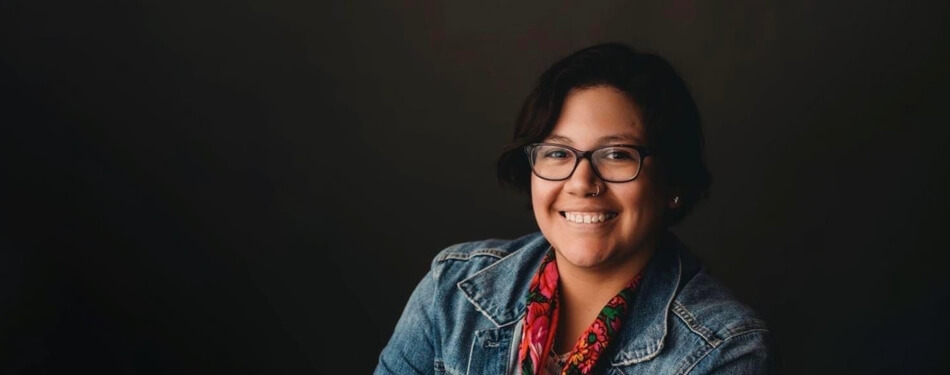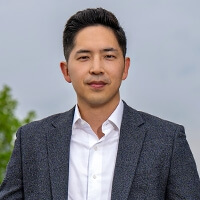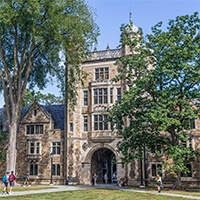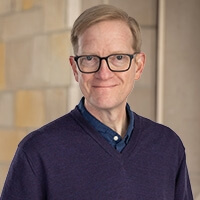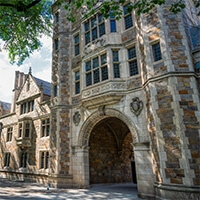Because 2L Jasmine Neosh is a member of the Bear Clan of the Menominee Indian Tribe of Wisconsin, it makes sense that she would pursue a legal career. Of the five clans of the tribe, the Bear are the administrators, responsible for governing and the law.
“That’s not always how I thought of myself. But as time has gone on, this feels natural because I’m fulfilling my clan responsibilities,” said Neosh. “It’s a lot of responsibility, but at the same time, once you realize that that’s the role that you have and that’s how you give back, it feels pretty good.”
Neosh did not travel a straight path from the reservation to the Law School. She initially moved to Chicago and, after a brief stint in art school, worked in the arts and restaurant worlds before becoming an environmental activist. Her motivation was the 2016 protest against the Dakota Access Pipeline near the Standing Rock Reservation. While she was active in the movement, she yearned to make a deeper commitment to environmentalism.
“It was very clear to me that something was amiss, not just at a basic, ‘maybe we should be recycling more’ level,” she said. “It was clear that [something was amiss at] a policy level, perhaps even a philosophical and epistemological level.”
Returning home
She decided to pursue a bachelor’s degree in public administration to provide a foundation for her commitment. At first, the decision of which school to attend didn’t have an easy answer. Her thoughts turned to a private college in the East. But she ultimately decided to return home to Wisconsin and study at the College of Menominee Nation, one of 32 accredited tribal colleges and universities (TCUs) in the US. Surrounded by deep forest, the college is imbued with her tribe’s reverence for the environment.
“My people have been taking care of the land for thousands of years,” she said. “And it’s a core part not only of our cultural and spiritual identity, but also our economic life. Our ability to thrive has been solely dependent on our relationship with the land and taking good care of it.”
While Neosh started at Michigan Law with the idea of becoming an environmental lawyer, she decided to pursue a career in litigation and appellate work after realizing that the aspect of the environmental movement that affected her the most was the sense of social justice. That will allow her, she said, to be the voice for people who don’t feel empowered to speak for themselves.
The Indigenous presence at Michigan
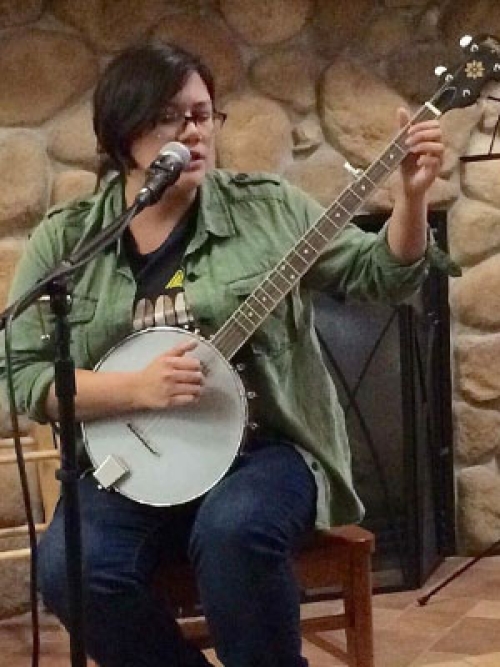
Among Neosh’s favorite classes are those with Professors Don Herzog and Richard Primus on constitutional law, a subject that she said “makes my brain hurt every day in the most beautiful way. It’s like when you’re working out and the next day you’re sore, but you can also feel it’s because you’re getting stronger and faster.”
Neosh also has participated in several extracurricular activities, including as vice president of the Native American Law Students Association (NALSA). She was thrilled when the organization hosted legendary Native attorney John EchoHawk, a leader in the Native American self-determination movement, to speak this fall about Native American relationships with law.
What initially drew Neosh to Michigan Law was the fact that it has a Indigenous presence. She’s taking a class on Federal Indian Law with Professor Kirsten Carlson, ’03; like Neosh, Carlson was involved in NALSA as a Michigan Law student. She also draws inspiration from Professor Matthew L.M. Fletcher, ’97, notable for his work as an appellate tribal judge and former in-house counsel for Native American tribes.
“It’s one thing to see other Natives in law. It’s another thing to see other Michigan graduates,” said Neosh. “With Professor Carlson and Professor Fletcher, seeing that intergenerational build is really, really inspiring.”

